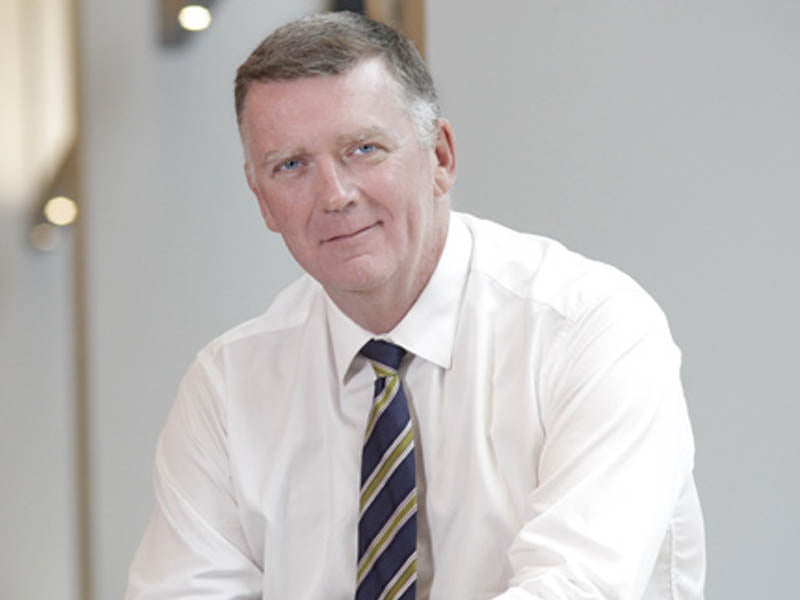Quantum computing is occupying the minds of many crack research teams both here and around the globe, but after a long and over-hyped gestation the technology is intriguing and worrying our top business minds as well.
The technology has been talked up for decades and like the boy who cried wolf, was probably spruiked too hard and too early. We’ve all heard the schtick about the first quantum computers spooling up and being able to wreck every encryption system on the planet in a nanosecond.
But just like in the fairy tale, the quantum computing beast is now shuffling around the outskirts of town and attracting the radars of those industries it’s likely to disrupt first up – like banks.

“Why I think quantum is important is because we are living in a digital revolution and right now we think this is as fast as change is going to get,” said David Curran, Westpac’s CIO.
“It’s not, it’s going to get even faster and one of the probable drivers of that speed up is quantum,” said Mr Curran who was part of a quantum computing event hosted by the Australia-Israel Chamber of Commerce last week.
“The application of quantum to things like artificial intelligence could be quite extraordinary and while most of us can’t get our heads around how quantum computing works we need to get our heads around Business Briefing
Top of mind for Mr Curran and other bankies is quantum computing’s effect on cyber security.
“It changes the whole game from a cyber point of view. From a commercial point of view, it exercises my mind a lot.”
Cyber criminals may be given “a unique set of opportunities to do what they want to do,” Mr Curran said.
At the moment, the cyber arms race from a financial entity’s point of view is a “reasonably even race”, according to Mr Curran.
The worry for the finance industry is that rapid developments in quantum could turn the status quo on its ear and leave banks struggling to catch up with the crooks.
“If you change that game to the point where we have to change completely how we address that, rather than just keep in the game, we need a lead time of a whole lot more than just six to twelve months,” Mr Curran said.
“That is genuinely in my mind a threat to not only our economy but the businesses in that economy.”
Professor Andrea Morello, from UNSW’s Centre for Quantum Computation and Communication Technology, was also on the AICC panel and says a quantum computer capable of pushing aside RSA encryption is a long way off.
Professor Morello believes a quantum computer with 1000 qubits (the quantum analog of a binary bit) will be available within the next ten years.
“Those things don’t actually do very much, though. To use a quantum algorithm to crack RSA you need many, many millions of physical qubits and that is a long way down the track.
“And I’m not even sure we can know for sure we can ever build something like that.
“That is an extremely challenging engineering task.”
He points out that quantum computing offers opportunities for increasing cyber security.
“The quality of random numbers you can get out of quantum is much improved and can be used for security.”
“I would certainly advise businesses to be quantum ready and aware of what the challenges are but also keep in mind that quantum technologies offer opportunities for increased data security, rather than risk,” Professor Morello said.
Michael Hush, lead quantum control engineer with Sydney University spin out Q-CTRL who was on the AICC panel, agrees with Professor Morello on the cyber opportunity.
Dr Hush said there are already conventional technologies that could ward off a quantum-based attack and new protection algorithms under development that would bolster cyber defences.
“There’s a lot of technologies which don’t necessarily require quantum hardware and there are encryption algorithms out there still being developed that are looking very promising that could be deployed with computers we already have.
“Really, it’s just about being ready. If you have a feeling about when these technologies are going to reach maturity, as long as you are there beforehand you can in principle do a big update to your software and be ready for those kind of attacks.”
Professor Elanor Huntington, Dean of the ANU College of Engineering and Computer Science and a panellist at the AICC event, who agreed with Professor Morello and Dr Hush had said earlier in the discussion that early quantum compute development offered potential for accelerating AI and machine learning processes and tightening up the accuracy of predictions.
“One of the opportunities around AI that quantum brings is that we in the computing world talk a lot about how AI and machine learning can do all these amazing things but then you start to say that 75 per cent accuracy means that if the pedestrian steps in front of the (AI) car they got squashed,” she said.
Quantum could both tighten up predictive accuracy and tackle “hard” computational problems in all sorts of scientific and business processes that are presently beyond the power of conventional silicon.
Mr Curran was not completely convinced by the academics’ optimism, especially around the cyber security issues.
“Why did Jesse James rob banks? Because that’s where the money is. We’ve always been behind and the reason we have always been behind is the criminal only has to get it right once – we have to be right all the time,” he said.
Do you know more? Contact James Riley via Email.

